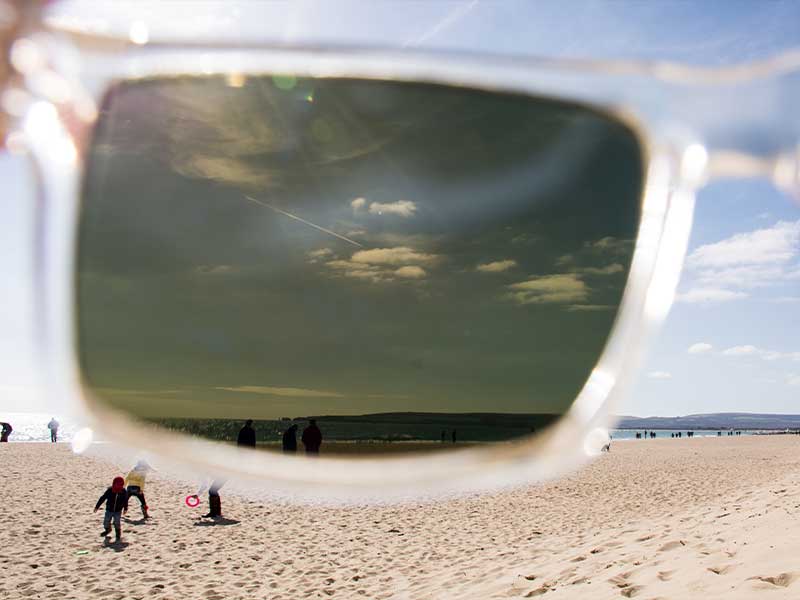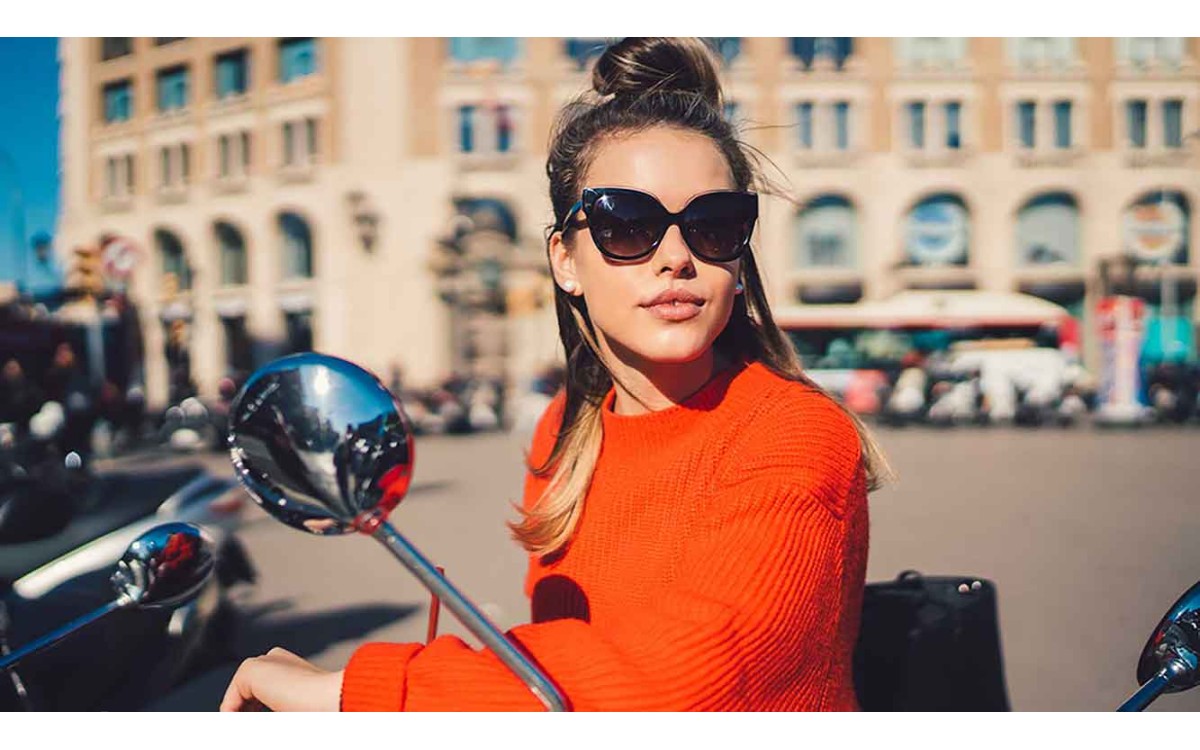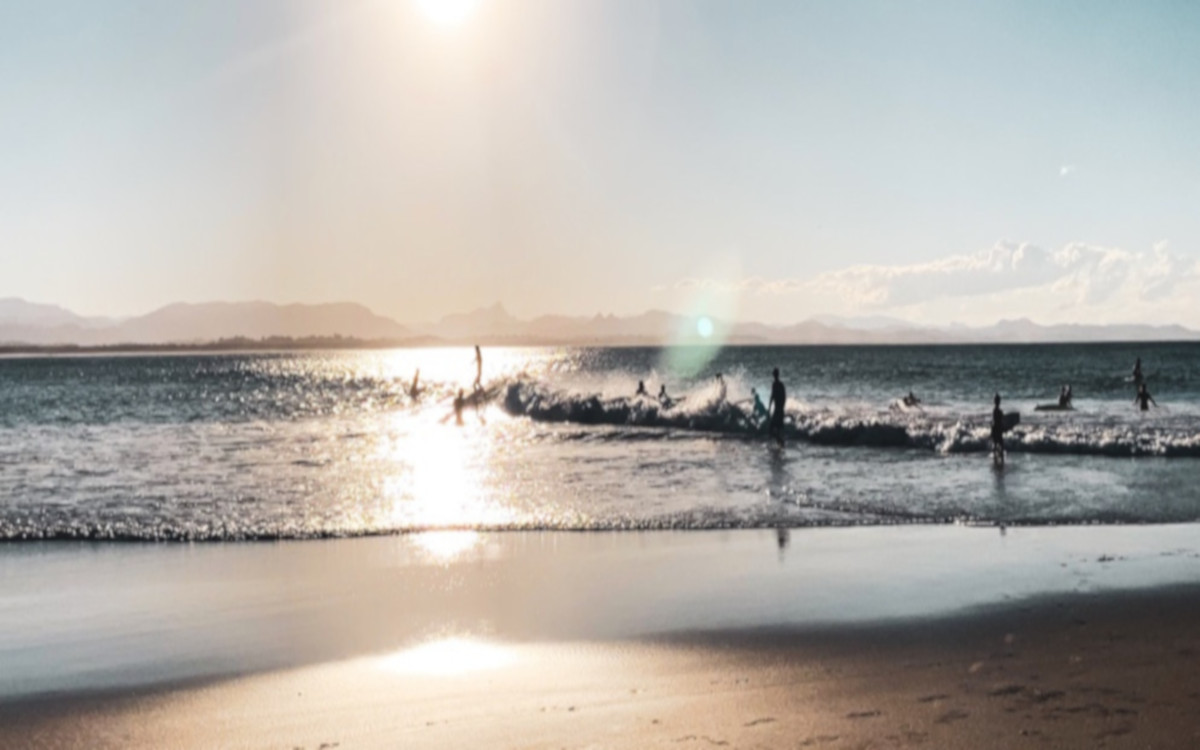If your idea of a great weekend is golfing, fishing or hiking in the great outdoors, it’s important you have the best sunglass lenses for protection and performance.
An important thing to consider before choosing the right lens is what you’ll be doing when you wear them.
Driving is made far more pleasurable when you’re not squinting, and this is when polarised lenses are ideal. Reducing glare is paramount for long road trips.
Golfers need to be able to see the ball and play from well-lit areas to shady tree-covered spots, so an adaptable lens is best.
Tennis requires a strong and flexible lens that can handle the impact of running and potentially being dropped on the court. Polycarbonate lenses and polyamide lenses are made from tough plastic that will survive the hardiest of activities. Because they are so light your shades will stay on better too.
Polarised lenses are an angler’s best friend. Fishing is unique in that you need crystal clear vision of what’s beneath the water and so will benefit from as much glare reduction as possible.
Understanding UV protection
When it comes to sporting activities, it’s important to choose the best sunglass lenses with adequate ultraviolet (UV) protection. Why? UV radiation is a major cause of skin cancer in Australia and is estimated to cause 20 percent of cataracts and other vision-impairing conditions such as macular degeneration.
But popping on any old pair of shades isn’t the answer. You’ll need lenses that meet strict guidelines in order to keep your peepers healthy. Fortunately, the AS-NZS 1067 Australian standard for sunglass lenses – which is continually being revised and updated – is currently one of the most stringent in the world. Many leading brands of designer sunglasses build their reputations on these sunglass lens standards.
A word of caution: if you’re considering buying those knock off sunglasses in Bali – don’t. They’re cheaply made and are unlikely to meet UV or shatterproof standards. It’s a short term saving with a long-term consequence and your eyes deserve better.
Here's how you can learn to spot the differences between real and fake designer sunglasses.
Different sunglass lenses and features to consider
Whether you’re teeing off a shot, or patiently waiting to hook your next catch, clear vision is key. The best sunglass lenses eliminate almost all UV rays but if reducing glare is what you’re after, then polarisation is what you need.
Anglers know that pulling the line at the right moment can be the difference between the dinner you caught and fish and chips at the pub. In order to see clearly enough through the glare of the water’s surface, polarised lenses are perfect for you. Driving and flying a plane require different needs. Let’s take a look.

Polarised lenses
Polarised lenses have a special coating that offers anti-blur and anti-haze protection, which allow for greater comfort and visibility in the sun.
In short, polarised lenses eliminate unwanted glare whether from roads, water or windshield reflections. However, in some instances they can distort your vision and that’s why you’d never catch a pilot wearing polarised lenses when he boards a jet. The technology that reduces the glare from the sun can also black-out the LCD display on your dashboard or flight instruments.
Learn more about how polarised lenses work
Who polarised lenses are recommended for
Polarised lenses are ideal for water activities. Because they block glare and reduce the sun's reflection off the water, they’re widely regarded as the best fishing lenses and boating lenses. They allow wearers to see clearly at greater distances and water depths. Polarised lenses are ideal for drivers, as they reduce the impact of horizontal rays of light reflected from the road on bright, sunny days.
Lens Materials
There are three main types of lens material: polycarbonate, polyamide and glass.
Polycarbonate lenses are made from non-standard plastic that’s typically used in workplace safety glasses. They provide complete protection from UV rays and are up to 35% thinner than glass and other sunglass lenses. Polycarbonate lenses are up to 10 times more impact resistant than glass or standard plastic lenses which makes them perfect for sports such as tennis, beach running, rock climbing and other vigorous activities.
The downside of polycarbonate lenses is that they can easily be scratched because they're relatively 'soft'. Ironically, the material's flexible nature is what allows it to absorb impact without fracturing, making it strong. A solution is to protect your sunglasses with a protective scratch-resistant coating.
Polyamide or CR-39 lenses are made from a type of nylon and are suitable for rimless glasses as they’re the lightest of all the sunglass lenses. They maintain an exceptionally high optical quality similar to glass lenses. Polyamide lenses can also include a protective scratch resistant coating to guard delicate mirroring.
Glass provides excellent viewing quality but is heavy and costly. Brands such as Ray Ban and Persol use glass lenses but you can replace them with lighter lenses if you want to wear them when fishing or playing golf. It is important to remember; these lenses are not shatterproof so are not recommended for sports activities.
Lens colours
When it comes to outdoor sports, coloured or tinted lenses can bring added visual clarity in difficult lighting environments. Grey and green lenses are a standard all-rounder and can help prevent colour distortion whereas blue lenses will diminish red tones so are best avoided if you’re driving.
Darker lenses such as amber, copper or brown are ideal for golf and will heighten the contrast between the grass, fairways and sky, making it easier to follow the ball. Other benefits of coloured lenses include relieving eye strain. At Sunglass Fix we pride ourselves on offering 13 different lens colours to choose from.
Layered features
That’s the base material covered, now let’s talk about customised coatings.
Hardened coatings – a hardened protective top coating gives your sunglasses the ultimate life extension. The final outer layer is a tough, scratch-resistant coating that helps wick away sweat and makes cleaning a breeze.
Polarised layers – the reduce glare provided by polarised lenses allows you to wear them longer with reduced eyestrain. Some users claim they even reduce the onset of migraines and headaches.
Mirrored Lenses – as well as looking ultra-cool, mirrored coatings reduce the amount of light that passes through your sunglasses lens. They reflect the light away from your eyes which is why they’re so popular for water and snow sports. As the mirror is traditionally softer, adding a scratch-free layer will provide extra protection and make your lenses last longer.
How to choose the right sunglasses for your face shape
Whether you’re fashion conscious or not, you want to look and feel good. There's a science to picking out the right frames for your face shape to bring out your best features, as a general guide stick to the below:
Oval or round: Opt for square, narrow or angular frames to lengthen the face and provide greater balance.
Square or oblong: Balance a rugged jawline with rounded or soft corners.
Heart shaped: Use angular frames to complement a narrower chin. Avoid oversized or teardrop shaped frames that accentuate your forehead.
Diamond: Rimless or oval frames will balance your proportions: just make sure they’re not wider than your cheekbones.
When choosing the best sunglass lenses, you may also wish to consider how they complement your skin tone, hair colour and eye colour.
Sunglass Fix: A sustainable alternative
Now you have all the info you might want to upgrade your sunglass lenses to match your activities. Alternatively, do you have an old pair of sunnies you don’t wear anymore? Upgrade your lenses and they’ll be as good as new.
At Sunglass Fix we specialise in high-quality polycarbonate lenses, polyamide and glass lenses. All of our lenses meet AS/NZS 1067:2003, and all other known regional quality and safety standards. They come in an extensive range of colours and styles that fit more than 130,000 different frames.
Replacing old lenses or putting in new ones is easy. All lenses from Sunglass Fix are affordable, easy to install and meet 100% UV protection requirements.
Browse our collection now








